- Home
- Matt Rogers
The Ruins Page 4
The Ruins Read online
Page 4
The soldier spoke in Uyghur.
The voice in Slater’s ear whispered, ‘He asks you what all that muscle is good for. You surrendered. We wanted a fight.’
‘No, you didn’t.’
‘Who are you to say?’
‘Believe me. This was the best outcome for you.’
‘And why is that?’
‘You haven’t seen me fight.’
‘Seems like we never will.’
‘I don’t know… why don’t you put it to the test?’
‘You are going to come with us. Your friends will be happy to see you. We will make you squeal, all together. In a group. We will show the world.’
‘They’re not my friends,’ Slater said.
‘Then who are you?’
‘The babysitter.’
‘Is that right?’
‘Something like that, anyway.’
‘You have the look of a man who is feared elsewhere.’
‘I am.’
‘Elsewhere. Not here.’
Slater kept his mouth shut.
In fact, he offered his wrists to the four men in front of him.
Silently telling them, Let’s get this show on the road. I don’t have all day.
Cuff me.
One of the ETIM soldiers produced a thick wad of cable ties from his back pocket. Ordinarily, one might have underestimated their usefulness.
But Slater knew the power of common tools.
Duct tape and cable ties were near impossible to break free from.
There was no need to overcomplicate it. Sometimes the simplest option was best.
Now comes the hard part.
Slater silenced the doubt in his head.
He stretched his hands out further toward the cable ties, and all five of them bought it hook, line and sinker. There were no panicked reactions. Just mutual bemusement at how effortlessly they’d captured the American.
So when he stumbled and slipped in the sand, they didn’t think anything was amiss. It lined up with his idiocy. And it didn’t take a stretch of the imagination to believe it was genuine. The sand was fine and slippery underfoot. His heel slid out and he lurched forward, which was believable, too, because it put him in a horrifyingly precarious position. It was why he’d needed to silence the doubt.
Because if it went wrong, he was effectively committing suicide.
The garrotte tightened around his throat.
It almost broke through the skin, and it would have if the guy holding it didn’t slacken his grip to allow Slater room to breathe. If the guy had kept both hands wrapped tight around the garrotte, their prisoner would have killed himself with his own stupidity. They didn’t want that to happen. They wanted him alive and well so they could torture him alongside his countrymen, and he didn’t seem to have anything up his sleeve.
All of those variables combined into a decision, and the guy loosened his grip.
Just a few inches.
Giving Slater a bit of space to stop himself slicing his own throat.
But as soon as Slater had room, he righted his stumble, spun around on the spot so the garrotte was touching the back of his neck, and headbutted the guy holding it square in the nose.
10
Adrenalin and the power of surprise were on his side, and his forehead pulverised the delicate bones.
Slater heard the sound the impact made, and knew the man wouldn’t be putting up a fight anytime in the foreseeable future. The guy collapsed, losing his grip on the garrotte entirely. Slater caught the guy’s wrist on the way down and hurled it outward, and the wire fell away from his neck.
There was no risk of severing an artery anymore.
He was free.
He moved like a panther, twirling again on the spot and crash-tackling the nearest of the four men into the sand. On the way down he got his hands on the man’s Kalashnikov and wrenched it out of his palms, breaking a few of the guy’s fingers in the process.
With animalistic intensity he rolled over the top of the guy — who was now sprawled out on his back — and tumbled to a halt on the other side of his prone form.
With one hand Slater seized hold of the thin man’s jacket and rolled the guy on top of him, which made the other three hesitate to unload their weapons at their comrade. They’d do it, of course, because of the importance of the mission.
But they wouldn’t do it immediately.
Slater had given them a couple of unavoidable seconds in which they had to consider whether they were actually willing to cut through their friend to kill the very dangerous hostile underneath.
A couple of seconds was all the time in the world to someone like Slater.
He unloaded half the AK-47’s magazine into the trio, pointing the barrel through the space near the human shield’s underarm.
Up until that point the incident had been playing out in muted silence — aside from the grunts of exertion and the massive crack of a broken nose. But now the unsuppressed gunfire screamed in the night. The muzzle flashes lit up the ruins, and the noise howled across the desert. It illuminated the trio as they jerked and jolted on the spot, each of their torsos absorbing multiple bullets.
Slater watched them fall, one by one.
He knew that even if they weren’t dead, they were damn close to it.
And that was all that mattered.
He rolled the stunned ETIM soldier off him. The guy was temporarily deaf from the Kalashnikov firing close to his ears. He’d just watched his three friends murdered in the blink of an eye. He wasn’t injured — Slater had only thrown him to the ground — but he might as well have been. He was in shock, moving through metaphorical quicksand.
Slater shot him in the forehead at close range.
Then he got up and trained the gun on the guy with the broken nose.
The last man standing.
He counted to sixty. There was no rush. The guy on the ground was in his own private world of agony. The man wasn’t anywhere near a weapon — the closest gun was Slater’s own carbine, but even that was well out of reach. There was no-one else around. For good measure, Slater swept the area. There was nothing but the moonlight and the towering ruins.
He wandered over to the guy with the broken nose and picked up both the carbine and the garrotte wire. He tossed them both behind him, and then he sat down in the sand.
The man spoke English.
Out here, that was invaluable.
Slater waited for the man to get his bearings. When he sat up and surveyed the scene, dejection washed over his features. He saw his four dead colleagues. He saw Slater sitting there, holding the Kalashnikov at the ready. He saw no weapons in sight.
The guy felt his own face, and noticed his nose had already started to swell. It was hard to discern how bad the damage was in the lowlight, but Slater figured the nose would be the size of a tennis ball by the time the sun rose in the morning.
Slater said, ‘I’m going to ask you a couple of questions. If you don’t answer I’ll shoot you in the head. You’re a soldier, but you’re not ready to die.’
Simple.
Matter-of-fact.
Straight to the point.
The guy just nodded.
Slater said, ‘What’s your name?’
‘Mehmut.’
‘How come you speak English, Mehmut?’
‘We needed a translator. I volunteered to learn.’
‘By “we”, you mean the East Turkestan Islamic Movement?’
‘Yes.’
‘Did you take two or three Americans from these ruins?’
‘I don’t know.’
‘I’ll shoot you in the leg if you don’t figure it out in the next five seconds.’
‘I honestly do not know. This is a large region. If I knew, I would tell you. I am interested in self-preservation. I want to live. I don’t even believe in half of what we fight for. But I can support myself and my family doing this, so this is what I do.’
‘There are other options.’
‘I’m not about to have a conversation about the nature of this country with an American. You know nothing except your own bubble. You are sheltered, and you storm into other countries thinking you are doing the right thing.’
Slater managed a wry smile. ‘Trust me, I wasn’t going to get political.’
‘You think you know it all.’
‘No. I never claimed that. I know that those kids don’t deserve whatever you lot are planning to do to them. That’s all I care about.’
‘The world is not as simple as you think.’
‘To me it is.’
‘You are foolish.’
‘Maybe. In some aspects I am. Right now I’m the one with the gun, and I’m sitting next to four of your friends, and they’re all dead, and your nose looks like it’s about to burst, and you look like you’re about to pass out from the pain, and I don’t have a scratch on me except for some irritated skin on my neck. So who’s really foolish?’
The translator managed a smile of his own and said, ‘I have five friends.’
11
But Slater already knew that.
He’d heard the footstep a moment before he registered the look on Mehmut’s face — it was distant, on the very edge of his hearing, but he heard it all the same.
Even though his own hearing was still impaired from firing the Kalashnikov, and even though he was seated in a precarious position, he remained calm.
There was no use panicking over an outcome he could control.
He twisted on the spot, aimed the AK-47 into the shadows behind him, and shot a man standing under a vast jagged archway square in the face. The bullet hit with a meaty thwack and the silhouette of the guy’s head lost a vital chunk.
He hit the ground with the sort of finality that only meant one thing.
Slater turned back to Mehmut as if nothing had happened at all, and said, ‘You are going to take me to the prisoners, or, if you don’t know exactly where they are, you are going to point me in the right direction and do your best to fill in the blanks. Because I swear, I’ll make your life a living hell if you don’t do what I say.’
He needn’t have bothered.
Mehmut was defeated already.
Slater didn’t even have to open his mouth.
The fifth friend had been Mehmut’s last vestibule of hope, and Slater had dispatched him with ease. Now there was nothing left.
Slater could see it in the man’s eyes.
There was no-one else.
Mehmut said, ‘I have a family.’
‘So do those kids. Let’s go.’
‘Where are we going?’
‘You’re taking me to them.’
‘I told you — I don’t know where they are.’
‘But you know someone who does. Take me to them.’
Mehmut said nothing.
Slater said, ‘Don’t even try to sit there and pretend you have no possible way of finding out where they are.’
Half-heartedly, Mehmut said, ‘We run a tight operation.’
But he wasn’t trying to deceive Slater anymore. He’d given up.
Slater let the silence drag out. He let Mehmut imagine all the possibilities. All the ways Slater could hurt him. And there were many. Slater had the garrotte wire to work with, after all. He could skin the man alive.
And the lack of conversation created all sorts of hypotheticals that floated around in Mehmut’s consciousness. He started to focus on his broken nose, too. He felt the pain in all of its nuances.
Slater knew he wouldn’t be the next to speak.
He was more sure of it than anything else in the world.
Because he knew how to break a man.
And then Mehmut said, ‘I can take you to the kids.’
‘So you do know where they are.’
‘I can find out. It only takes a phone call. The system is not as bulletproof as I led you to believe.’
‘There we go,’ Slater said. ‘You’re coming round.’
He got to his feet, and Mehmut mirrored his actions. The translator picked himself up out of the sand and winced as the wind stung his badly battered nose. There was no fight in him. Slater could read the man’s body language, and it said it all. The hunched shoulders. The prolonged bouts of staring at his dead buddies.
And finally the submissive glance he gave Slater, begging not to be hurt more.
Slater said, ‘How did you get here?’
‘We drove.’
‘Who told you to come here?’
‘You know who. You thought she would help you for no reason.’
‘Great,’ Slater muttered under his breath.
He made a mental note for the immediate future.
Don’t trust anyone out here.
He said, ‘Let’s go to your car.’
Mehmut pointed to one of the bodies. ‘He has the keys.’
‘I’ll get them.’
Slater kept the Kalashnikov trained on the translator, even though he knew it probably wasn’t necessary. He backed up a few steps, keeping his eyes on Mehmut at all times. He bent down, rummaged through the pockets of the dead man’s khakis, and felt the cool touch of metal a moment later.
He pulled out the bunch of keys and smiled.
‘Let’s go.’
Mehmut bowed his head and led him to an open-topped jeep buried in the shadows of the Jiaohe ruins’ perimeter.
12
Mehmut went to the driver’s side of the ancient open-topped jeep, and Slater slipped into the passenger seat.
He’d retrieved his pack from the sand at the base of the Jiaohe ruins, and given his M4A1 carbine the once-over before allowing the translator to drive.
Now he had the gun resting horizontally across his body, with a hand on each of the grips and his finger an inch off the trigger.
The jet-black barrel was pointed at Mehmut’s stomach as the man got in.
Any hostile action and Slater would put ten consecutive shots into his gut with a single twitch of his finger.
Slater said, ‘I’m going to put my seatbelt on, and you’re going to leave yours off. That way if you even think about trying to drive this jeep off the road and crash it, you’ll end up hurting yourself ten times worse than you hurt me. I’ll probably survive it unless you achieve a miracle, and then I will use this gun to shoot you in the head if you’re not already dead.’
Mehmut said, ‘I would never try anything like that.’
Using the built-in GPS, they charted a three hour drive toward Ürümqi, the capital city of the Xinjiang Uyghur Autonomous Region. Mehmut said his contacts weren’t actually in Ürümqi, which gave Slater hope that the man wasn’t leading him astray. He seriously doubted ETIM were active in a city with a population north of three million people. But their main camps were in the general direction of the capital, and Slater approved the spiel with a slight nod.
Mehmut said, ‘Do you want any other information?’
‘Where do you think they are?’
‘I don’t know.’
‘If you had to guess.’
‘We have a camp in the Tian Shan mountain range. Sometimes we keep political prisoners there.’
‘You’re not going to drive me to your most heavily fortified camp, are you? That would be a very bad idea.’
‘I’m going to drive you to the camp where I think they’re located, and I will confirm it on the way there. Nothing else. I have no other intentions.’
‘I would, if I were you.’
‘I told you I am interested in self-preservation. That means helping you get what you need, so I can stay alive.’
‘You speak English very well.’
‘I work hard.’
‘To provide for your family?’
‘Yes.’
‘You’re a smart man.’
‘I like to think so.’
‘A smart man can create opportunities for himself that don’t involve an organisation practicing terror.’
Mehmut said nothing.
<
br /> He fired up the engine, and drove away from the ruins into the mountainous desert beyond.
13
Slater didn’t doze.
He didn’t even think about losing control of his attention.
It wasn’t in the realm of possibility out here.
They drove without incident for nearly two hours before Mehmut opened his mouth. Until then, Slater kept a watchful eye out the window, and the translator in his peripheral vision at all times. He couldn’t risk losing his train of thought for even a moment. It would mean certain death, especially at this level of the game. Outwardly he maintained a stoic expression, but inwardly he was alive with energy. He scrutinised and analysed everything.
The terrain didn’t change. It rolled on and on, endlessly, the mountains rising high and falling low and the plains sweeping into the distance, melding into the horizon as the night receded and gave way to dawn.
Slater didn’t get tired.
He hadn’t pumped himself full of stimulants like many of the special-ops boys did on a long, drawn-out operation. He didn’t want the inevitable crash, especially if it turned out he needed to stay in-country for more than a few days. You could crank yourself up on Dexedrine for maybe seventy-two hours before it all wore off and you fell apart mentally.
No, Slater had never relied on drugs.
He took them recreationally, of course, but when there was serious business in order he dispensed with all his vices.
He relied on his mind alone.
He didn’t even take caffeine on a mission.
Finally, after endless driving under a dark blue sky, Mehmut said, ‘We have a problem.’
Slater didn’t react. He didn’t panic. He just looked across.
‘What might that be?’
‘I need to make the phone call soon,’ Mehmut said. ‘I waited all this time because it needs to be casual. It needs to seem like nothing is wrong. I will confirm that you are my prisoner, and I will throw a question onto the end of the conversation asking where the other hostages were transferred to. I’ll confirm whether we took two or three. I’m not supposed to have that information, but I know the man I’m calling. He won’t mind divulging.’

 Nature and Blight
Nature and Blight The Wolves of Third Clan
The Wolves of Third Clan Ghosts
Ghosts Bear
Bear The Will Slater Series Books 1-3
The Will Slater Series Books 1-3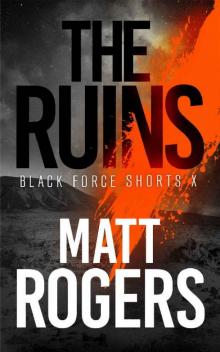 The Ruins
The Ruins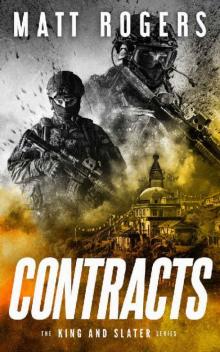 Contracts
Contracts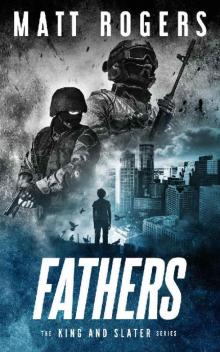 Fathers
Fathers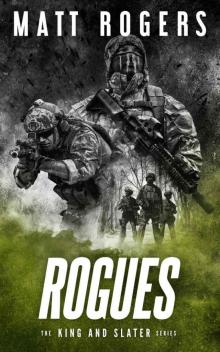 Rogues: A King & Slater Thriller
Rogues: A King & Slater Thriller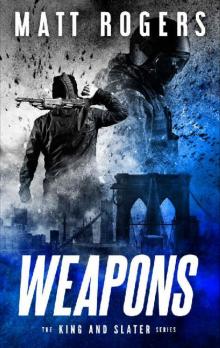 Weapons
Weapons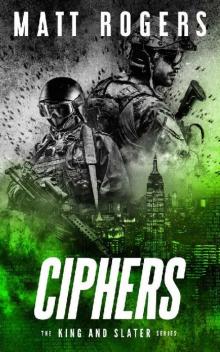 Ciphers
Ciphers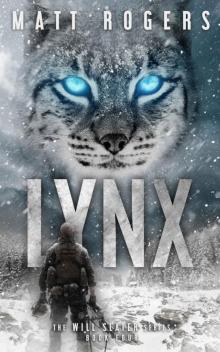 Lynx
Lynx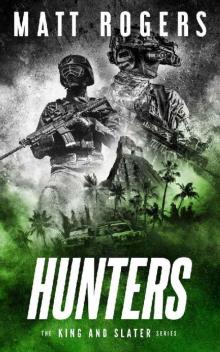 Hunters
Hunters Of Superior Design
Of Superior Design The Hidden: A Black Force Thriller (Black Force Shorts Book 4)
The Hidden: A Black Force Thriller (Black Force Shorts Book 4) Blood Money
Blood Money The Hidden_A Black Force Thriller
The Hidden_A Black Force Thriller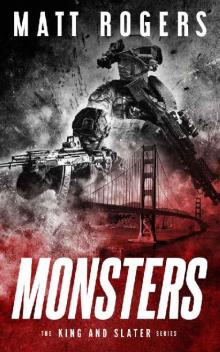 Monsters
Monsters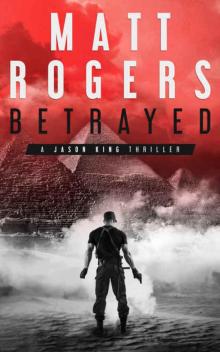 Betrayed: A Jason King Thriller (Jason King Series Book 4)
Betrayed: A Jason King Thriller (Jason King Series Book 4)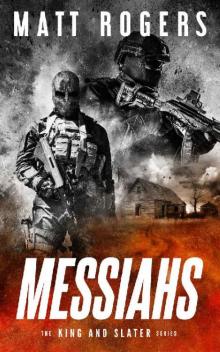 Messiahs
Messiahs The Wicked_A Black Force Thriller
The Wicked_A Black Force Thriller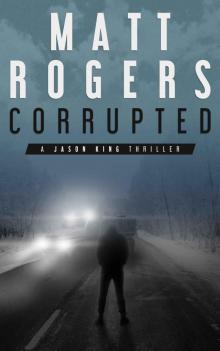 Corrupted: A Jason King Thriller (Jason King Series Book 5)
Corrupted: A Jason King Thriller (Jason King Series Book 5)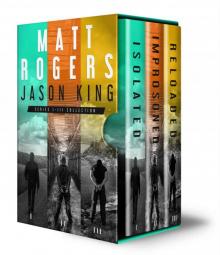 The Jason King Series: Books 1-3
The Jason King Series: Books 1-3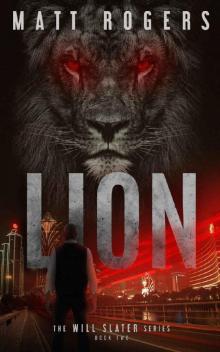 Lion
Lion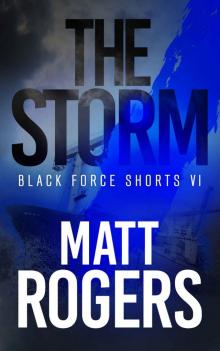 The Storm: A Black Force Thriller (Black Force Shorts Book 6)
The Storm: A Black Force Thriller (Black Force Shorts Book 6)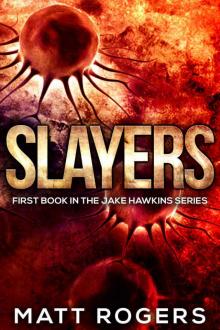 Slayers (Jake Hawkins Book 1)
Slayers (Jake Hawkins Book 1)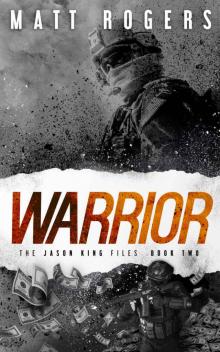 Warrior: A Jason King Thriller (The Jason King Files Book 2)
Warrior: A Jason King Thriller (The Jason King Files Book 2)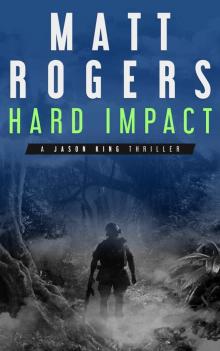 Hard Impact: A Jason King Operation (Jason King Series Book 0)
Hard Impact: A Jason King Operation (Jason King Series Book 0) The Wicked: A Black Force Thriller (Black Force Shorts Book 7)
The Wicked: A Black Force Thriller (Black Force Shorts Book 7)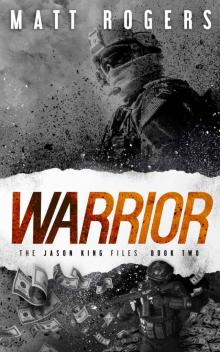 Warrior_A Jason King Thriller
Warrior_A Jason King Thriller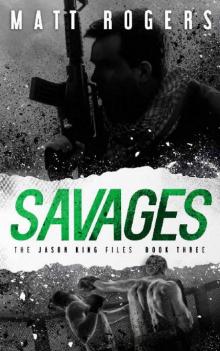 Savages: A Jason King Thriller (The Jason King Files Book 3)
Savages: A Jason King Thriller (The Jason King Files Book 3)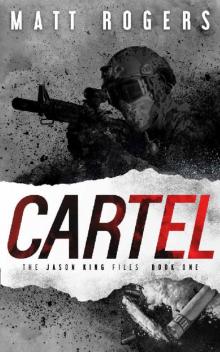 Cartel: A Jason King Thriller (The Jason King Files Book 1)
Cartel: A Jason King Thriller (The Jason King Files Book 1)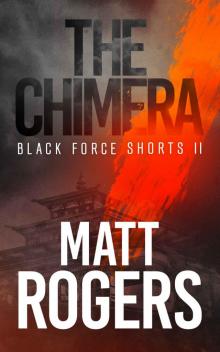 The Chimera_A Black Force Thriller
The Chimera_A Black Force Thriller The King: A Black Force Thriller (Black Force Shorts Book 8)
The King: A Black Force Thriller (Black Force Shorts Book 8)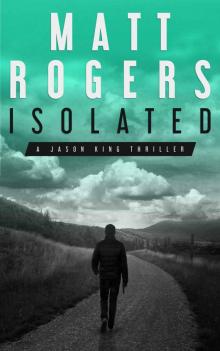 Isolated: A Jason King Thriller (Jason King Series Book 1)
Isolated: A Jason King Thriller (Jason King Series Book 1) The Victor: A Black Force Thriller (Black Force Shorts Book 1)
The Victor: A Black Force Thriller (Black Force Shorts Book 1)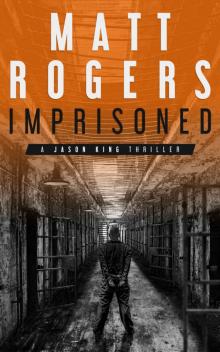 Imprisoned: A Jason King Thriller (Jason King Series Book 2)
Imprisoned: A Jason King Thriller (Jason King Series Book 2)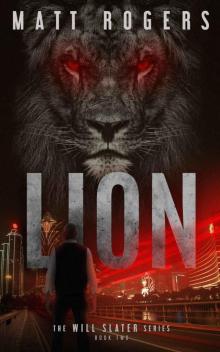 Lion: A Will Slater Thriller (Will Slater Series Book 2)
Lion: A Will Slater Thriller (Will Slater Series Book 2)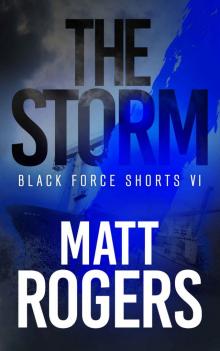 The Storm_A Black Force Thriller
The Storm_A Black Force Thriller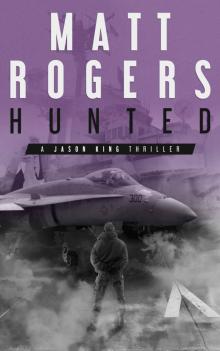 Hunted: A Jason King Thriller (Jason King Series Book 6)
Hunted: A Jason King Thriller (Jason King Series Book 6)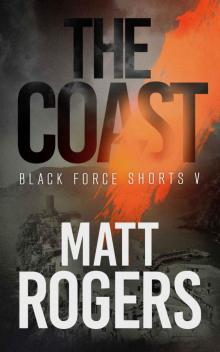 The Coast: A Black Force Thriller (Black Force Shorts Book 5)
The Coast: A Black Force Thriller (Black Force Shorts Book 5)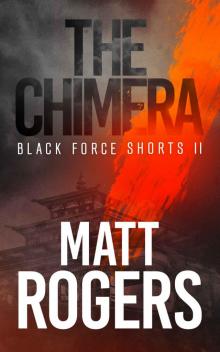 The Chimera: A Black Force Thriller (Black Force Shorts Book 2)
The Chimera: A Black Force Thriller (Black Force Shorts Book 2)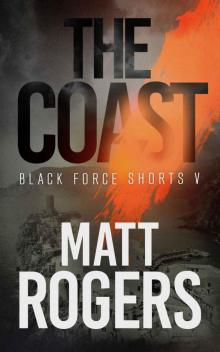 The Coast_A Black Force Thriller
The Coast_A Black Force Thriller